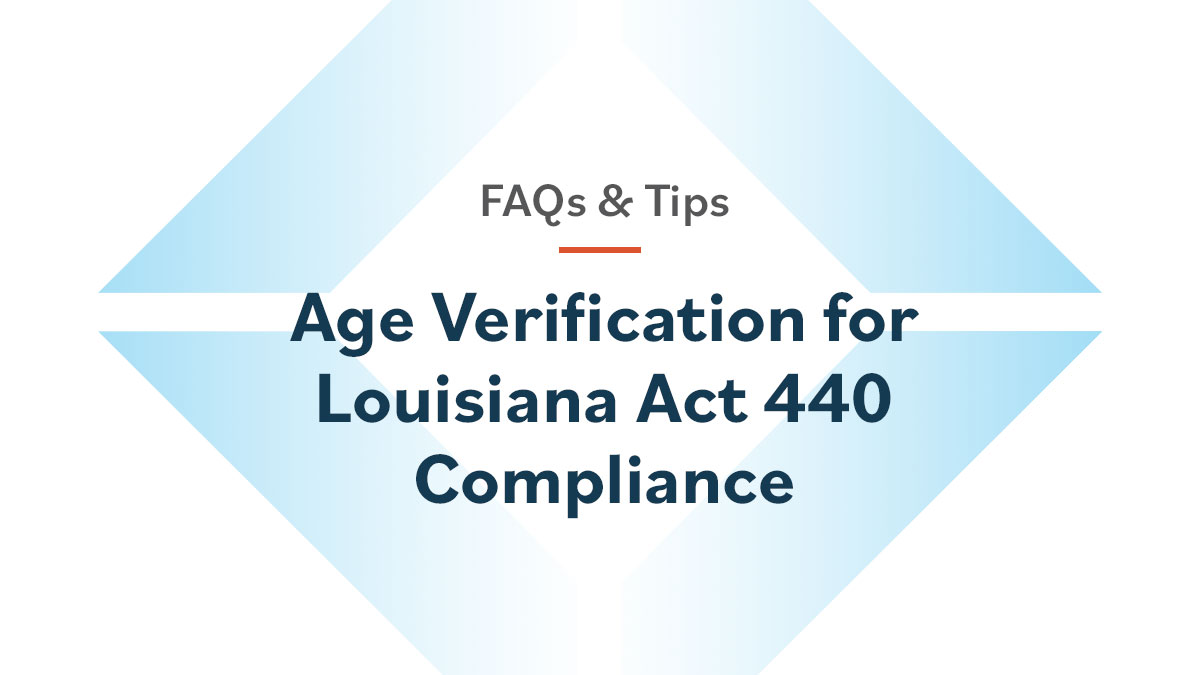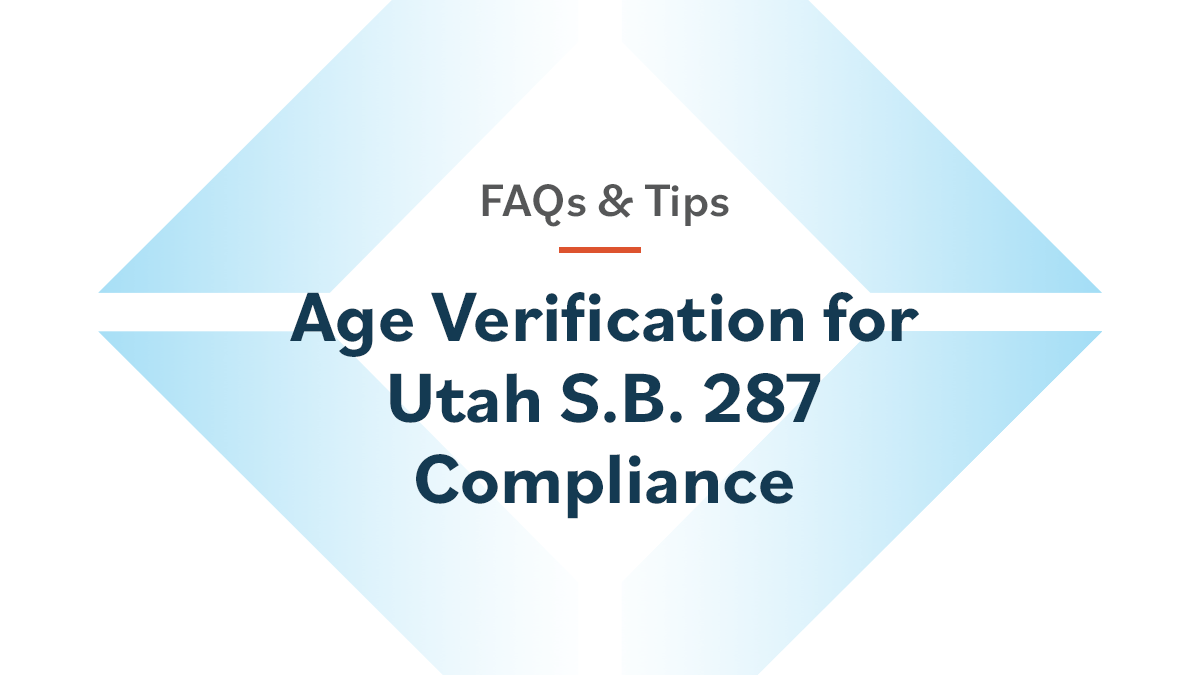
May 2, 2023 | Veratad Blog | Category: Age Verification
Louisiana Act 440 Age Verification: FAQs & Staying Compliant
Louisiana’s Act 440 (HB 142), providing “for liability for the publishing or distribution of material harmful to minors on the internet,” went into effect on Jan. 1, 2023. The act requires websites containing at least one-third adult or pornographic material to implement an age verification process under penalty of exposure to civil action.
Act 440 has proven controversial since its passage and enactment. There has been pushback from civil liberties and privacy groups, as well as confusion over bill language and potential penalties. That said, it is written law, and demands attention from website owners and digital publishers.
Here is a primer to LA Act 440. We’ll cover what is included (and not included) in the statute, age verification requirements, and potential solutions to challenges created by Act 440.
Louisiana Act 440 FAQs
LA Act 440 holds commercial entities liable “if the entity fails to perform reasonable age verification methods to verify the age of individuals attempting to access” pornographic websites or adult content. The act explicitly prohibits entities from retaining “any identifying information of the individual after access has been granted to the material.”
The act holds entities “liable to an individual for damages resulting from a minor’s accessing the material, including court costs and reasonable attorney fees as ordered by the court.” Similar penalties apply for retaining identifying information, either by the commercial entity itself or a third-party age verification vendor.
Louisiana Act 440 covers corporations, limited liability companies, partnerships, limited partnerships, sole proprietorships and other legally recognized entities that operates a website containing at least one-third “material harmful to minors.” It only covers material served to users and consumers in the state of Louisiana (e.g., New Orleans, Baton Rouge).
The act defines “material harmful to minors” as “any material that the average person, applying contemporary community standards would find, taking the material as a whole and with respect to minors, is designed to appeal to, or is designed to pander to, the prurient interest.” In particular, Act 440 calls out “material that exploits, is devoted to, or principally consists of descriptions of actual, simulated, or animated display or depiction of any of [acts starting on Page 3, Line 23], in a manner patently offensive with respect to minors.” (In other words: porn.)
Act 440 only covers access to material by Louisiana residents. “Bona fide news or public interest broadcast[s], website video[s], report[s] or event[s]” are exempt, as are online outlets with less than one-third “material harmful to minors.” (It is not specified how this third is counted.) Internet service providers, their affiliates and subsidiaries, search engines and cloud service providers cannot be held liable for “providing access or connection to or from a website or other information or content on the internet or a facility, system or network not under that provider’s control.”
Act 440 requires that users attempting to access materials verify they are at least 18 years old by providing a digitized identification card, or by “complying with a commercial age verification system.” The system must utilize a government-issued identification document, or “any commercially reasonable method that relies on public or private transactional data to verify the age of the person.” Transactional data “can include but is not limited to records from mortgage, education and employment entities.”
Veratad’s age verification solutions offer near-plug-and-play Act 440 compliance. We support both document- and data-based verification methods, and comply with Act 440’s rules around data retention. You can request a demo of Veratad’s age verification platform here.
The full text of Louisiana Act 440 / HB No. 142 is available here (PDF).



